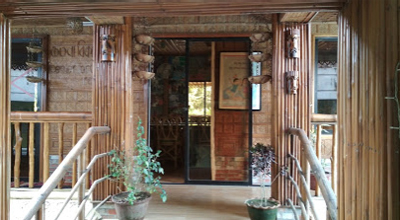- Home
- About Us
- Activities
- SDG-01: No Proverty
- SDG-02: Zero Hunger
- SDG-03: Good Health and Well-Being
- SDG-04: Quality Education
- SDG-05: Gender Equity
- SDG-06: Clean Water and Sanitation
- SDG-07: Affordable and Clean Energy
- SDG-08: Decent Work and Economic Groth
- SDG-09: Industry, Innovation and Infrastructure
- SDG-10: Reduced Inequalities
- SDG-11: Sustainable Cities and Communities
- SDG-12: Responsible Consumption and Production
- SDG-13: Climate Action
- SDG-14: Life Below Water
- SDG-15: Life On Land
- SDG-16: Peace, Justice and Strong Institutions
- Notice Board
- Wings
- Gallery
- Docs
About Us
Executive Summary
Eco-Social Development Organization (ESDO) continuous its mended for holistic development of rural populations in the areas of livelihood, skill development, health, education, water and sanitation, nutrition, mother and child health care services, kitchen gardening, growth monitoring, immunizations, arsenic mitigation and the developing needs of marginalized people of Bangladesh from its inception 1988. At the same time ESDO has been continuing micro credit, social development, food security, disaster management, agricultural development, livestock, fisheries, water resources management, hazardous child labour reduction, counter trafficking intervention, human rights, adult education, child education, skill development activities for ensuring equitable society free from poverty in ESDOs working area.
ESDO managed mentioned programs in 2231 Unions, 129 Municipality, 272 upazilas under 49 districts & 7 City Corporation, 8 Division of Bangladesh, directly reaching more than 8.46 million poor and vulnerable people. Different need-based programs are aimed to enhancing the capabilities of deprived people in terms of social development, disaster facina, food security, agriculture, gender, nutrition, micro finance, health, environment, rights and governance, education and human development, and with empowering them to solve the problems that affect their lives and to cooperate with each other to resisting oppression and exploitation. The undertaking of such self-initiated and autonomous actions is an important achievement in a context where the deprived people are dependent for their livelihood and social security.
For last 30 years of development journey, ESDO has been serving with untiring efforts to bring forth and optimum development situation in Bangladesh. During this long span of time ESDO has been intent to adapt with the changing situation and provide the most time-fitting services especially for the poor and disadvantaged. The comprehensive software & hardware support package has been dedicated to ensure, skill development activities, social development, food security, disaster management, agricultural development, livestock, fisheries, water resources management, micro credit, hazardous child labour reduction, counter trafficking intervention, human rights, adult education, child education, health and nutrition, hygienic sanitation and personal hygiene for the grassroots people while focusing on community motivation and empowerment of people. A community focused and people centered approach has been adapted by ESDO while considering the national policy and Sustainable Development Goals (SDGs) as its guiding principle.
For the sake of bringing sustainable food security, skill development, livelihood development, ESDO provides demand-driven and bottom-up services, instead of supply-driven and top-down services, ensuring community participation in every step from planning, through decision-making to implementation and monitoring and follow-up as well as cost sharing by community people. Maintaining this process ESDO has succeeded in creating a sense of ownership of the programmes among the community. This approach has contributed greatly to the sustainability of the program success.
ESDO has made advocacy programmes having major components like ethenic minority rights, gender awareness and women rights, social mobilization, legal aid services, hazardous child labour reduction movement, disaster management, social assistance to Adibashis and extreme minorities, counter trafficking etc. along with various promotional activities.
ESDO regularly conduct three types of planning for project activities. These are: (i) Strategic Plan (ii) Business Plan (iii) Yearly Plan. ESDO facilities monitoring considering it as an essential tools for its programme management to measure the effectiveness of ESDO programmes both on quantitative and qualitative aspects. The effective facilitation of regular monitoring also enables the ESDO management take necessary correctively measures on its programme interventions at the right time. ESDO’s all project activities are monitored monthly and quarterly basis by the respective project supervisors besides this ESDO has a group of experienced monitor team under the guidance of team leader. The monitor team has monitored the project activities quarterly and submits report to the Executive Director as well as in monthly coordination meeting. According to the monitoring findings, the ESDO management undertook action to improve the planned activities.
For ensuring qualitative and quantities programme ESDO’s all project activities periodically and regularly audited by ESDO’s Internal Audit Team. A professional group regularly audited ESDO’s entire project under the direct supervision of Executive Director. As per audit findings, the concern sectoral coordinators ensure to meet-up their lacking or shortfall within require period. ESDO regularly evaluated ESDO’s programmes and projects through different period. Mid-term evaluation and final evaluation is mandatory for each programme.
For ensuring qualitative and quantities programme ESDO’s all project activities periodically and regularly audited by ESDO’s Internal Audit Team. A professional group regularly audited ESDO’s entire project under the direct supervision of Executive Director. As per audit findings, the concern sectoral coordinators ensure to meet-up their lacking or shortfall within require period.
ESDO has its own transparent financial system as well as comply with donor’s requirement. ESDO maintain both accruals, cash basis accounting, and follow the double entry accounting system. Keeping accounts both way manually and by software also. Weekly, monthly, and quarterly reporting systems are established. ESDO is able to produce and provide report to the donor as per their requirements.
ESDO believes that efficient staff is a significant parameter of organizational strength. ESDO consider them as the most valuable resources. 3684 staff has been working with ESDO, among them 1883 are male and 1801 are female and Volunteer Staff: 1020 Male: 180 Female: 824 of the total staff 91 are working in the central office and the rest 3593 are working under the regional and branch offices.
| # | Name | Designation | Date of Birth | Occupation | Phone Number |
|---|---|---|---|---|---|
| 01 | Rokeya Sultana | Chairman | 07/08/1966 | Assistant Professor, Private College | +88-01727-448939 |
| 02 | Md. Mozammel Haque | Vice Chairman | 17/09/1950 | Rtd. Principal | +88-01712-481696 |
| 03 | Dr. Md. Shahid Uz Zaman | Member Secretary | 01/05/1968 | Executive Director, ESDO | +88-01713-149333 |
| 04 | Sereza Banu | Member (Finance) | 27/10/1975 | Social Work | +88-01744-777227 |
| 05 | Most. Momotaz Parveen | Member | 31/10/1977 | Teacher | +88-01719-541912 |
| 06 | Advocate Masuda Parveen | Member | 27/07/1974 | Advocate | +88-01712-426214 |
| 07 | Md. Ishar Ali | Member | 20/10/1956 | Professor, Private College | +88-01712-426214 |
Head Office
-
Address: Collegepara (Gobindanagar),
Thakurgaon-5100, Bangladesh - Phone: +880 561 52149
- Email: [email protected]
-
Saturday - Thursday: 08:30 am - 05:00 pm
Friday - Friday: Closed
Dhaka Office
-
Address: ESDO House, Plot #748, Road #08,
Adabor, Dhaka-1207, Bangladesh - Phone: +880 2 58154857
- Email: [email protected]
-
Saturday - Thurseday: 08:30 am - 05:00 pm
Friday - Friday: Closed

